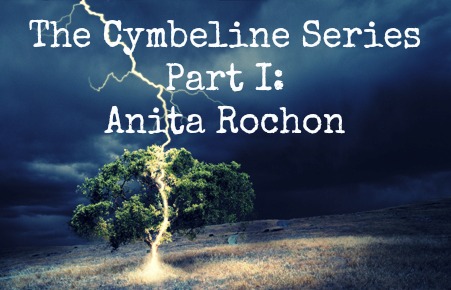


 Anita Rochon artistic co-directs The Chop in Vancouver with Emelia Symington Fedy, which has produced numerous new works including “KISMET one to one hundred” and “How to Disappear Completely” which continues to tour internationally. She frequently collaborates with some of the city’s most celebrated companies including Theatre Replacement, Théâtre la Seizième, Vancouver Opera and Electric Company Theatre. She is a graduate of Studio 58 (Acting) and the National Theatre School of Canada (Directing). She was awarded the Ray Michal Prize for an Outstanding Body of Work by a New Director, the Siminovitch Protégé prize and a Mayor’s Arts Award.
Anita Rochon artistic co-directs The Chop in Vancouver with Emelia Symington Fedy, which has produced numerous new works including “KISMET one to one hundred” and “How to Disappear Completely” which continues to tour internationally. She frequently collaborates with some of the city’s most celebrated companies including Theatre Replacement, Théâtre la Seizième, Vancouver Opera and Electric Company Theatre. She is a graduate of Studio 58 (Acting) and the National Theatre School of Canada (Directing). She was awarded the Ray Michal Prize for an Outstanding Body of Work by a New Director, the Siminovitch Protégé prize and a Mayor’s Arts Award.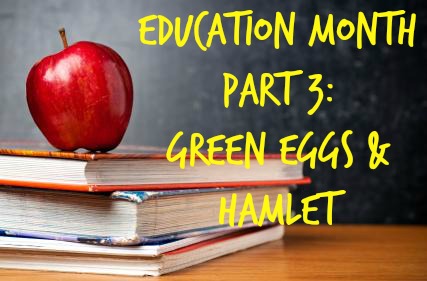
University of Alberta professor, David Ley’s, shares his exciting way into teaching and speaking Shakespeare. David uses the words of Dr. Seuss to help actors find and use the rhetorical structures Shakespeare provides. It may seem like a strange pairing, but here David explains to us the impact it has on the way actors understand and take hold of language.
How did you come up with this technique? What made you connect Seuss with Shakespeare?
I did a lot of reading to my own kids and since I’m interested in pattern identification I think I began hearing it; I have a mind that naturally compares and contrasts. All teaching looks for deep structure – what are we trying to get at underneath it – and so I think that’s where it all began.
I take my students to go and read to Junior Kindergarten classes and I do that because the thing that is going to hold our interest when we’re 4 is the same as when we’re 40 or 80. The ‘I Can Read’ series by Dr. Seuss should be called the ‘I Can Communicate’ series. I’ve always been interested in rhetoric and Seuss & Shakespeare each highlight different rhetorical structures. Dr. Seuss invites a playfulness that’s often missing in Shakespeare, as well as the willingness to engage in playfulness.
I think both are brilliant and people often say that in 400 years we’ll still be reading Dr. Seuss… We have become denotative… For example, the word, “ocean” can be so many different things, from a big wonderful place to a terrifying place. Seuss teaches us how to express these things – big or small, far or near, good or bad, but we often fail to give this information in the support of our communication.
What can Seuss teach us about Shakespeare’s words? Structure? Rhetoric?
I love Sister Miriam Joseph’s books (Shakespeare’s Use of the Arts of Language) and books that list endless numbers of forms of rhetoric. When an actor picks that up, when you embrace it and you invest in it, it actually takes you somewhere bigger. In repetition, for example, what a modern actor will do is make them all different because they’ll go, “I can’t be all the same,” so what they’ll do is take it apart and spread it out on the field instead of stacking it. When you stack and you stack and you stack, you realize the power of repetition… So, there’s the aspect of repetition, there’s the breadth of antithesis; you can pitch tag an argument:
‘Shall I compare thee to a summer’s day?’ Now as I continue through that speech, I actually now know that when I hit this pitch I’m talking about you and when I hit this pitch, I’m talking about the summer’s day. If I’m talking about apples and oranges it’s different than apples and jumbo jets. Then I would have to have a greater range in my voice to tell you that the things that I’m comparing are much further apart. So, things like that help the audience follow the language.
Articulation is another thing. I’m old fashioned because I always say let’s see what it’s like if we just pronounce all the consonants… We use, in a way, the Dr. Seuss to see how much people are accustomed to investing in sounds, so that the quality of the sound itself has an inherent action in it: “Love is not love which alters when it alteration finds.” If you don’t do the “v” on “love”, “luffing” is something a sail does when there’s no wind in it. I think if an actor invests in the word, if you look somebody in the eye and say, “I love you,” and you commit to every sound of that word, you’re actually going to feel something. Then the text can actually take you somewhere, you don’t have to make something of it – it can actually take you for a ride.
What has been the response of actors in using this approach? How has it changed their attitude toward or facility with Shakespearean text?
I’ve done this in front of Martha Henry and in front of school teachers and the response is always great. First of all, it’s a great diagnostic to find out what your habits are – what you do, what you don’t do… What’s neat about it is that it’s worked with high school kids, it’s worked with school teachers, with student actors and it’s worked with professionals. And also, it’s fun… people pick up Shakespeare and get all serious about it, we get all academic with it. The point is that we are taking what is ultimately an academic study (of rhetoric) and we’re applying it in a way which is fun. You know, kids’ books are great, all sorts of kids books, because in kid’s books you find books that are meant to be read aloud. Shakespeare was not meant to be read silently. I don’t think Shakespeare wrote Romeo & Juliet for some academic to go sit down in his quiet office while he listens to Chopin and works his way through that structure. Those words were meant to be spoken by somebody to somebody else. And the only words that we find like that now, besides some poetry, are kids’ books.
This stuff only works when you make people sit on the floor and pretend they’re three years old. It’s surprising how much people actually want to do that. So, it becomes a really fun little exchange where people are behaving like they’re three and responding to the reader like they’re three, which actually makes the reader have more fun. And then they take out their Shakespeare and there’s much more life, there’s much more dynamic expression and range in the way they present that text.
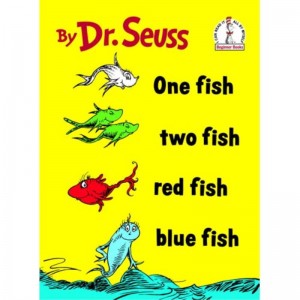
Photo credit: http://www.adoremusbooks.com/onefishtwofishredfishbluefish.aspx
One of the great books is One Fish, Two Fish, Red Fish, Blue Fish – it’s the gold standard, it’s the ‘take the pebble from my hand’ book. What’s interesting is you actually have to coach actors to identify the patterns. So, what do we have to do when we’re reading that book?
Here’s one example: you have to encourage people to finish final consonants. I’m a voice coach and what do I have to do more than anything? Encourage people to finish final consonants, don’t drop the energy at the end of the line. That’s what I say more than anything else. “Say! Look at his fingers! One, two, three… how many fingers do I see?” We get people reading it really flat. But “three” is more than “one” so you have to tell people, “can I hear in your voice that three is more than one?” Then, the fact that he has eleven fingers is a big discovery, because you’ve built up to that. But modern actors, even at a pretty high level, are not going to do that, so they’re not going to get that wonderful discovery that happens, because they haven’t explored what it means for eleven to be more than one.
Then, there’s any number of pieces of Shakespeare that you can find that have that kind of repetition in them. Claudius’s ladder of thought in Hamlet is a classic example.
Do the Dr. Seuss, then do the Claudius one:
“Say! Look at his fingers! One, two, three… how many fingers do I see? One, two, three, four, five, six, seven, eight, nine, ten, he has eleven! Eleven! This is something new. I wish I had eleven, too!” (One Fish, Two Fish, Red Fish, Blue Fish)
“Give me the cups,
And let the kettle to the trumpet speak,
The trumpet to the cannoneer without,
The cannons to the heavens, the heaven to earth,
Now the King drinks for Hamlet.” (Hamlet 5.2.)
Do you have a favourite line from each of these writers?
A favourite line from Seuss… maybe: ‘Unless someone like you cares a whole awful lot, nothing is going to get better, it’s not’ (The Lorax). Also fond of the book: Oh, The Places You’ll Go! It’s full of wonderful philosophy, which takes me to, ‘To thine own self be true, And then it must follow, as the night the day, thou canst not then be false to any man.’ (Hamlet). We get the philosophy of both writers giving advice to young men going out into the world. I have sons.
David Ley holds an MFA in performance from York University with a diploma in Voice Teaching. He is a Professor in the Drama Department at the University of Alberta where he teaches Voice and Speech, Dialects, and Acting. David has extensive experience in private practice teaching vocal skills to a wide array of professional voice users from schoolteachers to politicians and has taught many voice workshops both across Canada and abroad. He spent ten seasons as a Voice Coach at Canada’s Stratford Festival and continues to be a regular instructor in Stratford’s Birmingham Conservatory. He has done numerous feature newspaper interviews commenting on dialects and vocal performance and has been featured in two CBC documentaries on Canadian speech. Media outlets around the world have covered his work on the Vibrant Voice Technique including: The Toronto Star, The Globe and Mail, The Guardian UK, the Huffington Post, Metro News International, and many others. David has 30 years of experience working as an actor in theatres across Canada and has acted in numerous film and television productions.
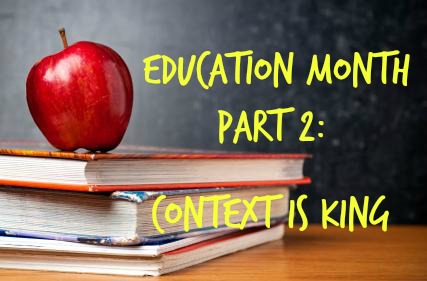
One of the reasons I always enjoyed teaching Grade 9 classes was that, for most students, Grade 9 English is often where they are first introduced to Shakespeare. I am enthusiastically interested in all things Shakespeare – his work, his life, his world – and the opportunity to share that enthusiasm, maybe even instill some of it in others was something that the Grade 9 classes always offered.
Given the barriers that language and poetry present to those new to Shakespeare’s work, I tried to find a way to engage students in Shakespeare before we actually started to read is work. I wanted students to make a connection to Shakespeare’s world that had relevance to them first, hoping that the shared connection would be a springboard for greater interest; and so, I asked students to “become a Shakespearean expert”.
The basic idea was for students to determine what really interested them in their world, be it fashion, music, food, sports, war, travel, etc. Having established that interest, they then explored how that same interest existed in the Elizabethan era.
For some students, the product might be a traditional report on “The Tudor Family” or “Elizabethan Discoveries”, but for most, the product would be models or drawings of the Globe, maps of explorers or war campaigns, paintings of costumes or fashion, or recreations of Elizabethan weapons. The presentations were just as varied – always one or two musical performances, sometimes a sampling of the food or a presenter dressed in a traditional Elizabethan costume that they had made.
These presentations were delivered with an enthusiasm and authority that I have seldom seen matched in other assignments. The students knew their stuff. Students watching the presentations were engaged by the presenters and fascinated by the trivia of another world, a world about which they had become an expert.
As we would enter into the works of Shakespeare, the class collectively knew more about Shakespeare’s world than I ever did – and they knew things about that world that interested them, that had connections and relevance to their world today.
I remember the first time I used a variation of this assignment in a Grade 9 class. It was fairly early in my career; I was enthusiastic about teaching, but not always confident in my abilities as an “ENGLISH” teacher. The day the assignments came in, I remember entering the English Office and excitedly telling my colleagues about all the great projects I had just collected. Now, it may be that it was a different time in teaching, and maybe I went on a bit too long, but my enthusiasm was not entirely appreciated and one older teacher finally turned to me and said; “That’s all fine, Larry, but what has it got to do with teaching English”.
The wind was knocked out of me. I was one of the younger members of the department and what I had been doing in my class was obviously not acceptable. The incident was momentarily painful but ultimately useful as it forced me to evaluate what I was doing in the assignment.
Rather than defeat me, that teacher strengthened my belief in the assignment because I realized I was asking the students to research, to read, to write, to create, to talk, present and listen – all things that have everything to do with teaching English, but with a sense of purpose and ownership that few activities ever have.
Check out the assignment here and please use it!
Larry Smith is an English and Drama teacher in Toronto who has been a Head of English at both adolescent and adult schools in Toronto. He first became excited by Shakespeare when in Grade 11 he was a member of the University of Windsor Youth Theatre and got to act in “A Comedy of Errors”. That enthusiasm for the bard exists to this day as he is a Founding Company member and Chairman of the Board of Shakespeare in the Ruff.
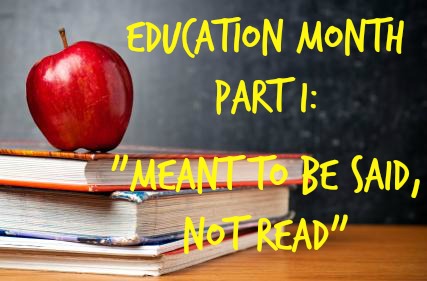
Shawn Rocheleau is a remarkable teacher who teachers high school Drama in the Toronto region. We were fortunate enough to meet Shawn a couple of years ago and our paths have continued to cross. We hope you’ll learn as much from Shawn as we have as you explore his philosophy of teaching Shakespeare and sample lesson plan, a beautiful way to introduce students to the rhythm, shape and movement of Shakespeare’s text.
I fell in love with Shakespeare early. I can remember reading (although not understanding) The Taming of the Shrew in late elementary school, and even though most of it flew right over my head, I loved the language. Even my monotonous Grade 9 and 10 English teacher’s readings of Romeo and Juliet and The Merchant of Venice couldn’t kill my love of the Bard. I played a dubious Claudius in Grade 11. After the privilege of participating in a student weekend at the Stratford Festival in Grade 13, and the disaster that was Introduction to Shakespeare, I managed to get myself through Teacher’s College and into my own English and Drama classrooms.
My love of Shakespeare became somewhat of a crusade when I realised that my fundamental premise behind teaching Shakespeare - it’s meant to be said, not read - was not a universal truth. While lip service was paid to “performing” Shakespearean plays, most of the lessons I was handed involved a lot of textual analysis and literary inquiry; very little of it was on-your-feet exploration. I was even told by a vice principal that I was “using too much Drama in my Shakespeare unit.”
The best way to get students - any student, of any level - to “get” Shakespeare is to get them on their feet. Get them moving. Give them the tools that Shakespeare himself built into the text and take the fear out of the words. Because it is those words that make Shakespeare so special and alive to audiences.
The first thing I do, to dispel the fear of the story, is to tell it. Not read it. Not show it to them in a video. Tell it. I use some snippets of text here and there, where I remember it, and I tell it from beginning to end. I leave some things out, and I try not to editorialise or assign value, I just tell them what they are going to see, hear, and eventually, be.
Then I give them the tools of the trade. We talk about the rhythm, the meter, the rhyme schemes, the words - all of the structural pieces that Shakespeare used to, well, to tell the story. We play with passages from the script we’re working on, move around the room and see what story the punctuation tells.
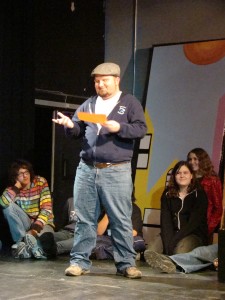 By the time we’re done, students have been playing with the text and have enough familiarity with it, so we can get down to the reading. I never send students home to read the text. We do it in class, on our feet, with the desks cleared away, as if we were on a stage. If we can get a stage, or if this is a Drama course, all the better. I treat it like a performance text (which of course, it is) and I talk to them like they are actors. What did you just say? Who did you say it to? Why did you say it? What does it mean? Just lots of questions, and everyone can answer.
By the time we’re done, students have been playing with the text and have enough familiarity with it, so we can get down to the reading. I never send students home to read the text. We do it in class, on our feet, with the desks cleared away, as if we were on a stage. If we can get a stage, or if this is a Drama course, all the better. I treat it like a performance text (which of course, it is) and I talk to them like they are actors. What did you just say? Who did you say it to? Why did you say it? What does it mean? Just lots of questions, and everyone can answer.
Then it’s their turn. They get to play with the text on their own, explore the meanings and the words, and eventually create their own interpretation of Shakespeare’s works. They must use the text, and they can’t alter the fundamental storyline, but otherwise, the world is their stage. They adapt, they create and eventually, they perform.
And then, if we can, we’ll go see a play, be it the one we have studied or another. Watching students react to something they have worked on and performed is more magical than watching the play - I always make sure I sit behind them so I can watch their reactions. My favourite moments are when they come to a new realisation or understanding of the text - the eureka moment where you know that their understanding of the world just got a little bit broader.
There are a ton of activities and exercises we can use to get students to understand and appreciate Shakespeare. The Stratford Festival, Royal Shakespeare Company, Shakespeare’s Globe, the Folger Library - all of these places have fantastic resources for educators who want to do more than just have students read silently and answer questions. In my opinion - and in my practice - anything that gets them off their seats, on their feet, with a script in their hand and an idea in their head is golden.
Shawn’s lesson plan: The Shape of Shakespeare can downloaded here. Some fabulous ideas, thank for sharing Shawn.
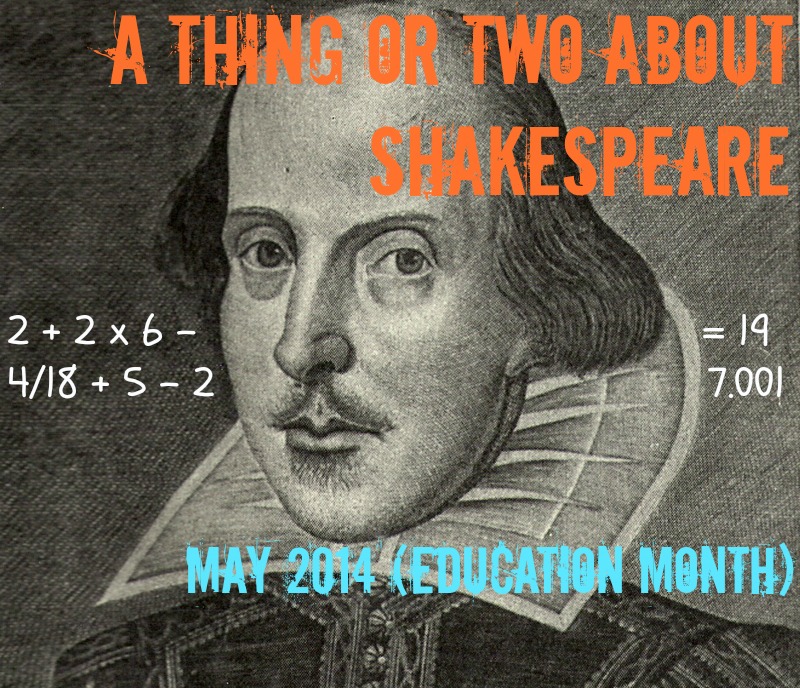
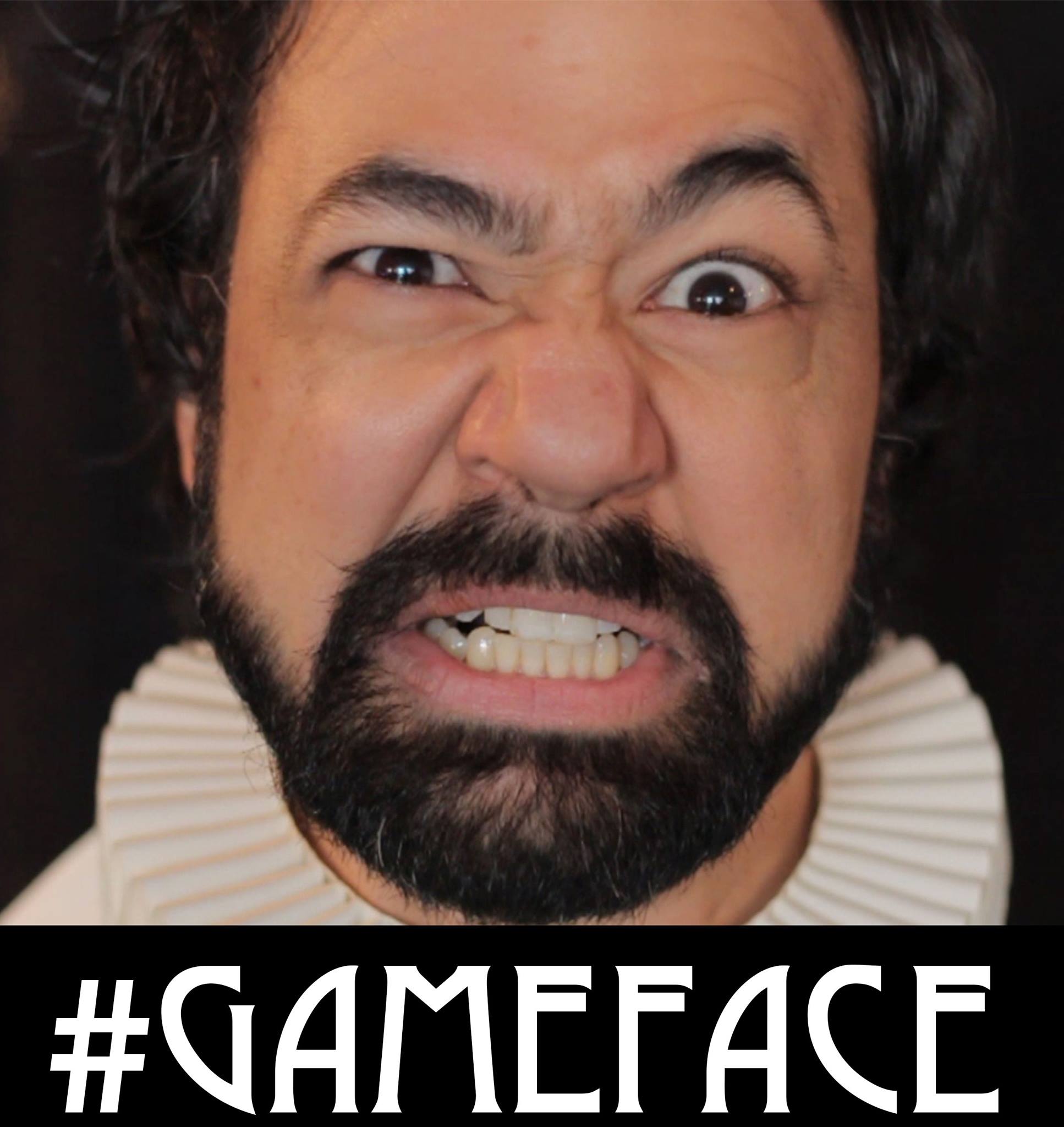
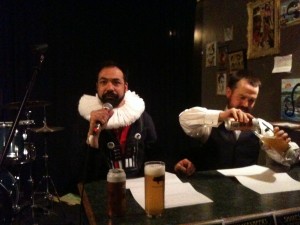
AJ Richardson & Scott Moyle compete in round two
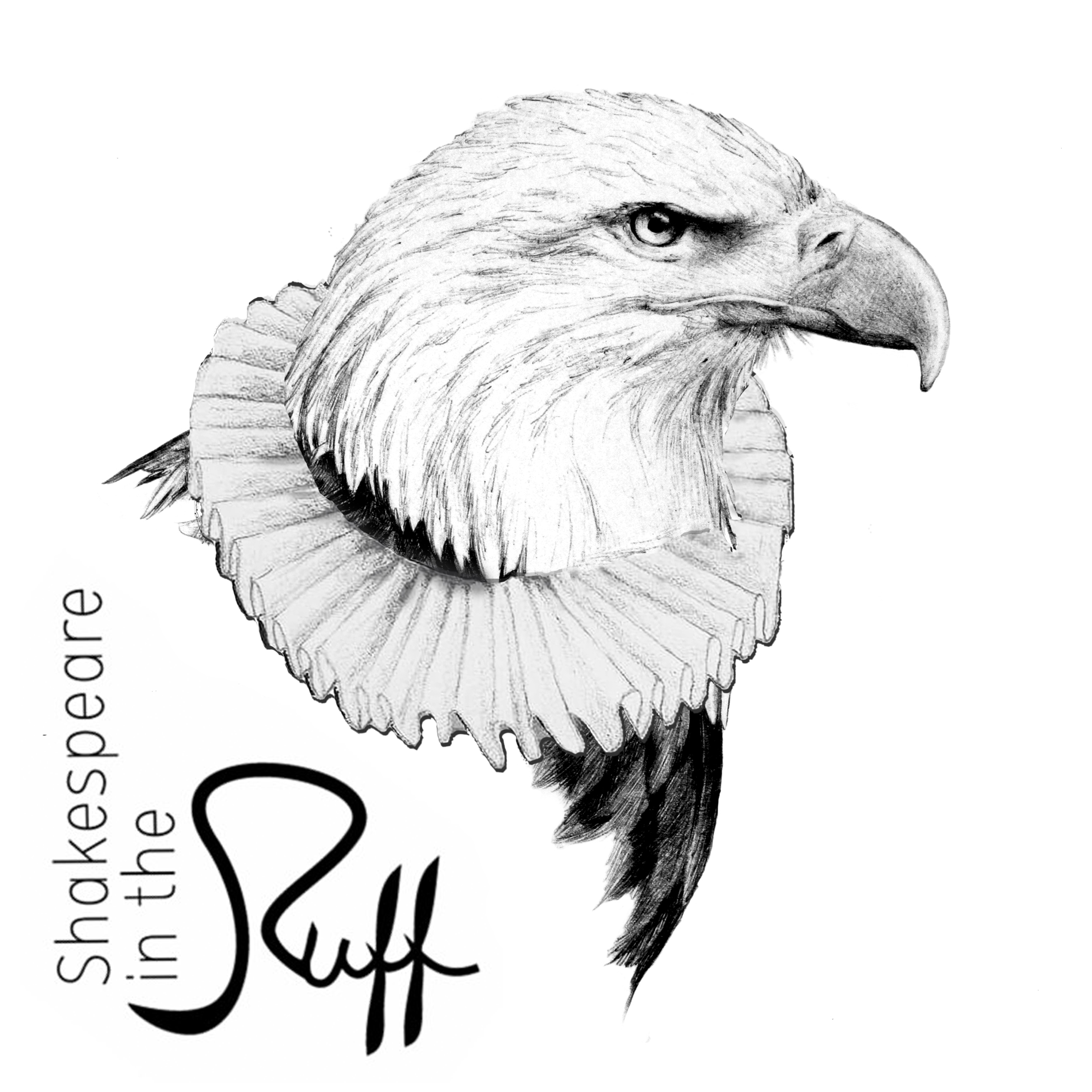
Right, so after an obscure comedy like Two Gents, and a dark twisted play like Richard III, it perhaps would have made sense for us to do a really nice production of Twelfth Night. And believe me, we thought about it. But one of the things we keep talking about at Ruff is our desire to take the risks that we wouldn’t be able to take if we were running a big operation like Stratford, with millions of dollars at stake. Ultimately we just want to have fun, and believe me Cymbeline = Crazy-Amounts-Of-Fun.
I was also incredibly baffled by this play when I first read it. Through the lens of the psychological dramas Shakespeare is famous for, Cymbeline appears to be some freakish accident by a senile playwright past his prime. The scope of the play is huge – many seemingly disparate plot lines, huge characters, and one improbable event after another. Really, it’s totally crazy. But writing Shakespeare off as past his prime seemed too easy – he was only 46 when he wrote Cymbeline, and this play, along with Pericles, marked the beginning of what seems to have been a very intentional shift in style and content of his playwrighting, now grouped together as the Romances. It seemed to me that he was evolving past the naturalism that we now revere him for and into something more sophisticated and intuitive, loosening up his verse and creating epic, larger than life stories.
And then, fortuitously, I went to a cold-reading of Cymbeline by the wonderful group The Howland Company and in the discussion afterwards, as we tried figuring out what the hell was going on in this play, someone brought up Picasso and Cubism. Picasso was the son of a naturalistic painter and from an early age had mastered his father’s craft. Having perfected this he moved on to explore a new form of expression and ended up with Cubism – reality viewed through a sort of prism. I found this an exciting way to look at Cymbeline – a piece created as an exploration of new forms of storytelling, a kind of theatrical Cubism. It was after this that I knew I wanted to direct this show, and that it was the perfect choice for Shakespeare In The Ruff
But if I’m being honest here, the real reason we chose Cymbeline was because of the mind-blowing stage direction: Jupiter descends in thunder and lightning, sitting upon an eagle. He throws a thunderbolt. Mother f#%*ing Jupiter on a mother f#%*ing Eagle!!!!!!!!!!!!!!!!! See you in August in Withrow Park.
*************
This is the simplest version of a Synopsis I can come up with: Imogen, a princess, gets married to her lover in secret against the wishes of her father – King Cymbeline. Her husband is banished and she flees the kingdom to join him, but in the meantime her husband has been tricked by a crazy Italian man into thinking Imogen has been unfaithful and he now wants her dead. All of a sudden the outbreak of war throws everything into chaos and the couple must survive until everything is made clear and they can be reunited. This doesn’t even included men hiding in chests, the evil step-mother, beheadings, long-lost brothers, prophesies, and the deus ex machina. A more complete synopsis can be found on Wikipedia.
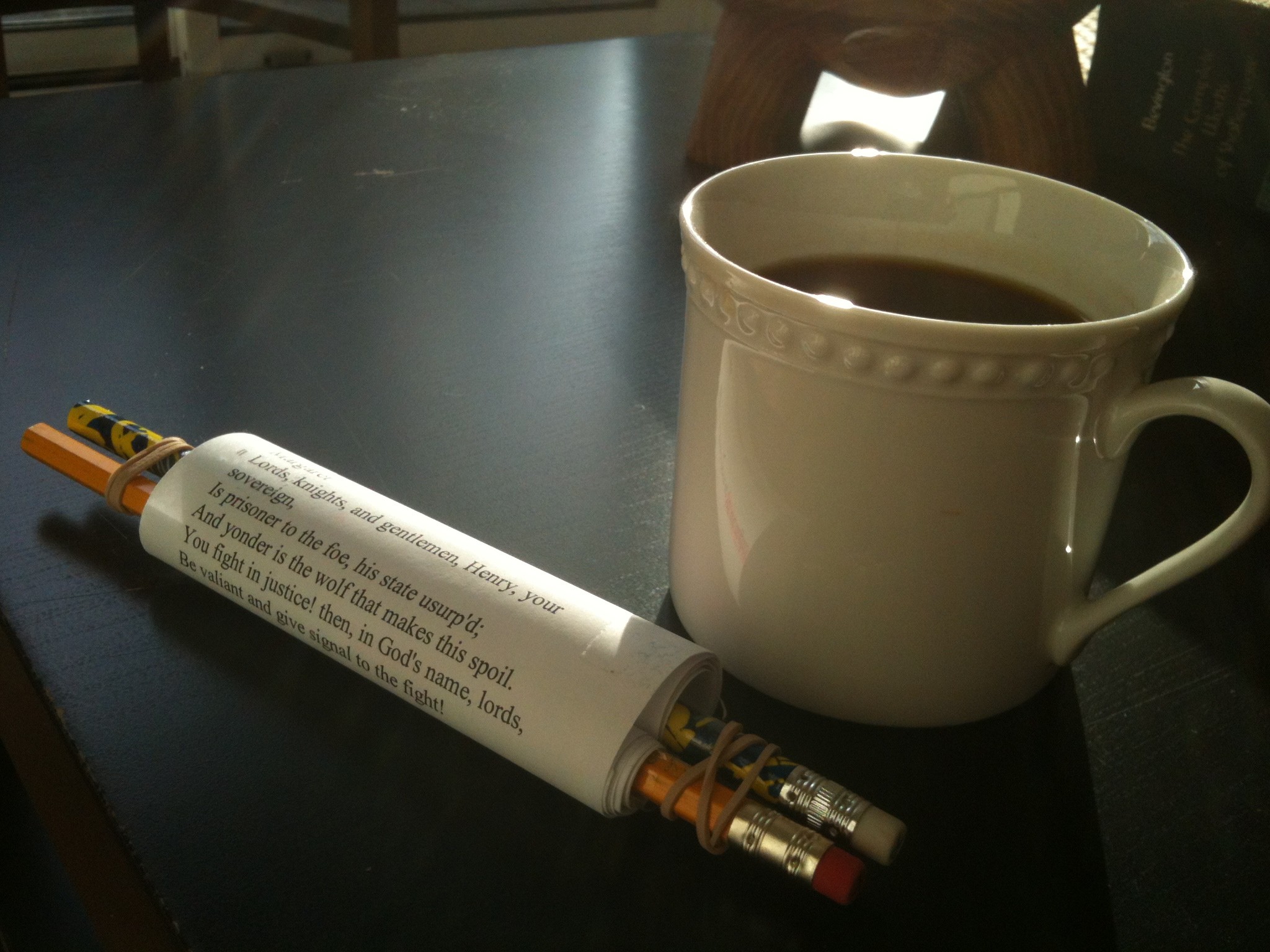
Last October, we took our Original Practices Experiment to The Stratford Festival where company member Kaitlyn Riordan was working. Actors received a scroll with their lines and cues, were asked to memorize it all, not read the play, and then come together and perform it in front of an audience, having never rehearsed together. We began playing with this concept two years ago at our Season Launch party and a week from today (April 14th) we hold our third annual Ruffing It. Actress Carmen Grant spoke to us afterwards about her experience last October and the mayhem of playing Elizabeth in ‘Henry VI, Part III’, having never spoken the lines to another actor before encountering an audience.
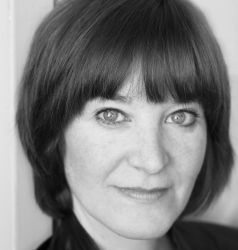 Ruff: Can you describe the challenge of working this way?
Ruff: Can you describe the challenge of working this way?
CG: I found that learning the lines was the greatest challenge for me within this process. I felt excited by the mystery of the process, but the majority of the morning was spent in a state of suppressed panic! As you know, learning lines is so much more than just memorizing words on a page. The motivation and objective of a character comes from what’s being sparked within their human impulses and, more often than not, a cue comes well before the other actor reaches the end of their line! But with only four words as a prompt (sometimes less!), the context of what I was saying was not clear. So, I would say my biggest challenge was learning the lines without knowing the entire text.
Ruff: How was it different from your normal process?
CG: My normal process is to read the entire play over and over again, so that I understand the story implicitly before I attempt to memorize my lines. That way, the lines I have to speak are already imbued with an understanding of not only my character, but the other characters in the play, how I feel about them, and the world as a whole. I usually find that by the time I’m on my feet in the rehearsal hall, I know the lines so well, I can almost forget them and am able to respond to the other actors in the scene by simply listening to what they are saying. The cues in their lines jump out at me more easily that way and the need to listen in a state of panic is removed! On the other hand, that’s part of what was exciting about it. The need to listen very hard to what the other actors were saying made for edge-of-your-seat presence onstage.
Ruff: What surprised you most on the day?
CG: When I realized that George wanted Elizabeth as his wife, I had already made the choice to seduce Edward whole-heartedly … and it could have been REALLY interesting to play with the idea that Elizabeth actually wanted George as much as he wanted her and NOT, in fact, Edward – as the brothers’ text seems to indicate.
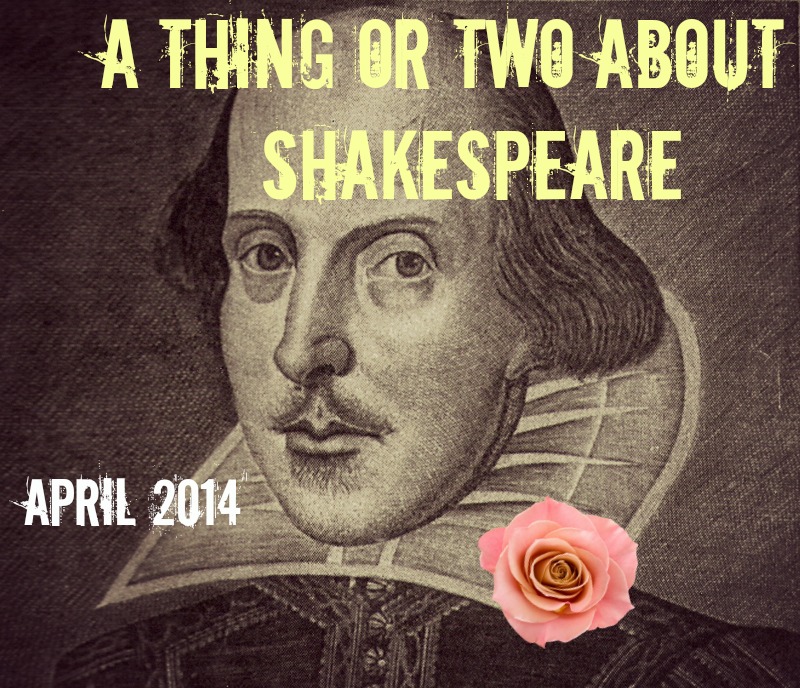
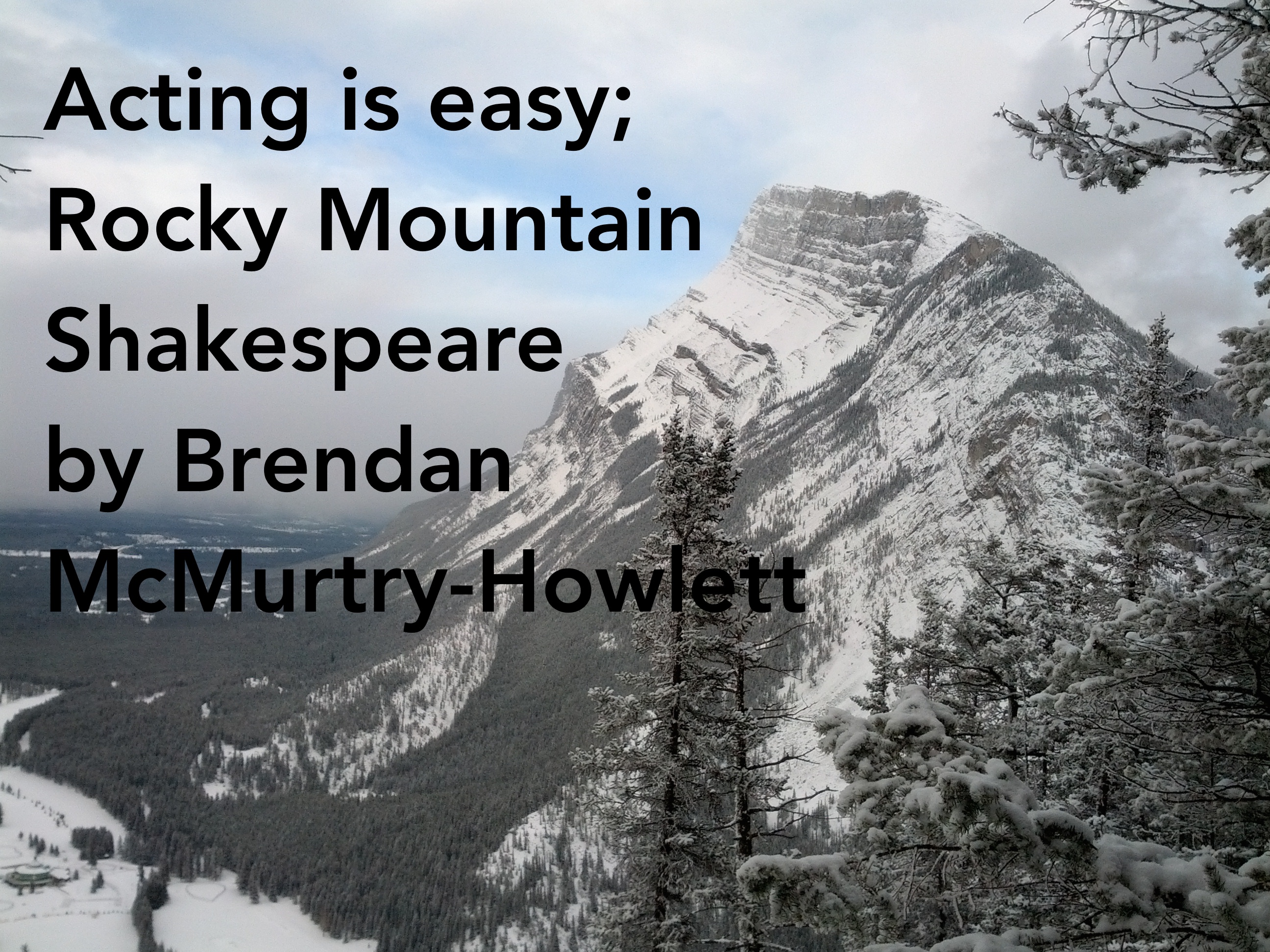
Ruff’s Artistic Director, Brendan McMurtry-Howlett, has been on a ‘sabbatical’ of sorts out west, taking part in the Banff/Citadel Professional Theatre Program. The program has two stages – a four-week residency at the Banff Centre for the Arts and then two months working on a production for Edmonton’s Citadel Theatre’s main-stage season. In his case, Brendan is preparing to play Romeo, in Romeo & Juliet, which opens April 5th (show info). He learned many lessons, which he plans to share with the company and put into practice this summer when he directs Ruff’s show. Here, Brendan shares one the biggest takeaways he had from the training.
“Acting is Easy”:
Well actually, I should say acting is easeful; though this is easier said than done. This is something that our two voice coaches, Susan Stackhouse and Alana Hawley, emphasized during my time at Banff and one of the most important lessons I took away from my time there.
As a kid I played a lot of sports in school. I was never particularly skilled at anything I couldn’t catch a football to save my life, but my advantage was that I was a damn fast runner. I pushed myself in this – always running faster, harder. The lesson I took away was that if you want to get better at something, then just work harder, use more muscles, sweat more and you’ll eventually be better. This lesson has served me well in life so far, but the problem is that I’ve also applied it to my acting. Unfortunately it doesn’t quite translate. Acting requires quite a bit more subtlety than that. Straining every muscle in your body won’t necessarily take you to the emotional place that Hamlet requires. In fact, so I’ve found during my time in Banff, it might actually prevent you from getting there.
My early sports lessons have translated into a tendency in my acting to work too hard at showing people how “good” an actor I am. This frequently means lacing every muscle in my body with as much tension as possible. For myself, I imagine it also comes from a feeling that who I am and what I’m feeling isn’t interesting or good enough to watch on stage. The result, though, is that who I am gets buried underneath all of those over-working muscles and that is definitely not interesting to watch on stage.
Muscles protect us. If we’re getting punched or hitting streetcar tracks and flying over our handle bars, flexed muscles protect us from breaking bones or damaging precious internal organs, but on stage, protection is the last thing we want, especially when it comes to accessing emotions. The goal is always to be as naked and vulnerable as possible, so that we can react honestly and emotionally to what happens to our characters in the course of a play. I guess this is why voice teachers are always doing so much relaxation work with actors.
One of my big “Ah-ha” moments during my time in Banff came while working with James MacDonald and Alana Hawley on a speech from Hamlet (Act 3, Scene 4 – Look here upon this picture…). I’m sure I’m not the only actor out there who sometimes carries tension in their shoulder and jaw muscles and working on this speech was no exception. There I was, a good student hitting all my line endings (thank you James), and discovering all my thoughts, but I wasn’t connecting to what I was saying in any kind of emotional way. Instead, I was flapping my arms around and reaching my head forward like a sprinter trying to get his nose across the finish line before anyone else.
Eventually, Alana came up and gave my neck and jaw a gentle massage, releasing the insane amount of tension held there. I went back at the speech, trying to consciously release it. At a certain point in the speech, I felt my neck tense and my shoulders ride up to my ears. I took a moment and relaxed and instead of leaning forward, I stood tall and continued. All of a sudden, stuff just started pouring out of me – I was blubbering away like a baby, tears and snot flowed out of me, but I was still riding the text like a beautiful wave of words and thoughts. It was unreal. I was one of the most pure moments of connection and “acting” I’ve ever experienced and it all came from simply relaxing.
Of course, when I did the speech again the next day all that tension was back and I couldn’t summon a single tear, even if my life had depended on it. I was trying to recreate that same moment and the more I tried, working it like an athlete, the further away I got from it. I was frustrated, but James reminded me that the emotional connection is the hardest part of acting and takes an entire lifetime to develop. One of the things he likes to say is “The only thing that is guaranteed to make you a better actor is age,” meaning, the more life you live, the more experiences you have, good and bad, the more emotional reference points you have in your acting. So thank you, James. I’ll take that small victory I found in Banff and keep living my life and then I’ll find my way back there once I’ve lived through enough emotionally-wrenching experiences in my life. Sounds fun, right? Can’t wait.
“Ah-ha” moments are few and far between. Have you ever had one while working on Shakespeare? What does it mean for you now?
Applications are now being accepted for the Banff/Citadell Program for 2015-apply here